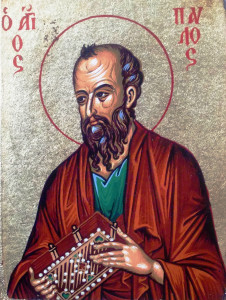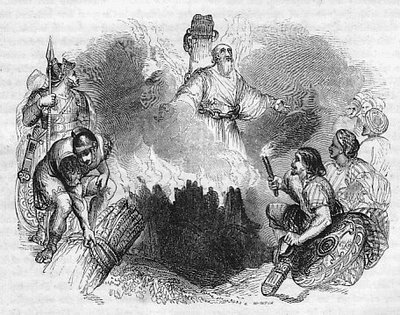
Saint Polycarp
Image: Vassallomalta
(EWTN) St. Polycarp was one of the most illustrious of the apostolic fathers who, being the immediate disciple of the Apostles, received instructions from their own mouths and inherited of them the Spirit of Jesus Christ, in a degree so much the more eminent.
Bishop of Smyrna (modern day Turkey Izmir) Saint Polycarp was a revered Christian leader during the first half of the second century.
St. Ignatius on his way to Rome to be martyred, visited Polycarp at Smyrna and later at Troas, wrote him a personal letter. The Asia-Minor (modern day Turkey) Churches recognized Polycarp’s leadership by selecting him as their representative in about the year 158 to discuss with Pope Anicetus the date of the Easter celebration in Rome–a major controversy in the early Church.
Only one of the many letters written by Saint Polycarp has been preserved, according to EWTN the one that he wrote to the Church of Philippi in Macedonia.
- St. Polycarp helped to form many Holy Disciples
among them were St. Irenaeus and St. Papias
During the sixth year of the Roman Emperor Marcus Aurelius (161-180) a violent persecution broke out in which the Christian faithful, gave heroic proof of their courage and love for God, to the astonishment of the infidels. When the Christians were torn to pieces with scourges until their very bowls laid bare, amidst the moans and tears of the spectators, who were moved with pity at the sight of their torments, not one of the Christians gave a so much as a single groan, so little regard had they for their own flesh in their cause for God.
No kinds of torture, no inventions of cruelty, cause them to to conform to the pagan worship of the times.
Polycarp was subsequently led into the crowded Smyrna stadium to be burned alive at which time he said to his tormentors:
“You threaten me with a fire which burns for a short time then goes out but are yourselves ignorant of the judgment to come and the fire of everlasting torments which is prepared for the wicked. Why do you delay? Bring against me what you please.”
 Miracle: St. Polycarp in the Flames
Miracle: St. Polycarp in the Flames
Which Did Not Consume Him
The flames did not harm Polycarp and an Order went out for a Spearman to pierce him through which he did and such a huge quantity of blood poured out of his left side that it quenched out the fire–the Centurion then ordered that Polycarp’s body be burned.
The “Acts” of Polycarp’s martyrdom are the earliest preserved, fully reliable account of a Christian Martyr’s death in 156
Tweet